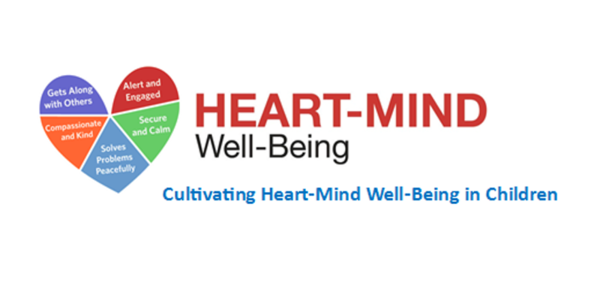 What is Heart-Mind Well-being?
What is Heart-Mind Well-being?
Heart-Mind Well-Being (HMWB) refers to the balance between educating the mind and educating the heart. Children’s Heart-Mind well-being begins with the significant adults in their lives. Warm and positive adult-child relationships are very important to a child’s well-being and ability to learn and develop.
What is the Purpose of this Workshop?
This workshop will provide an introduction to Heart-Mind Well-Being, with a focus on understanding and fostering the positive human qualities in yourself and the children in your life.